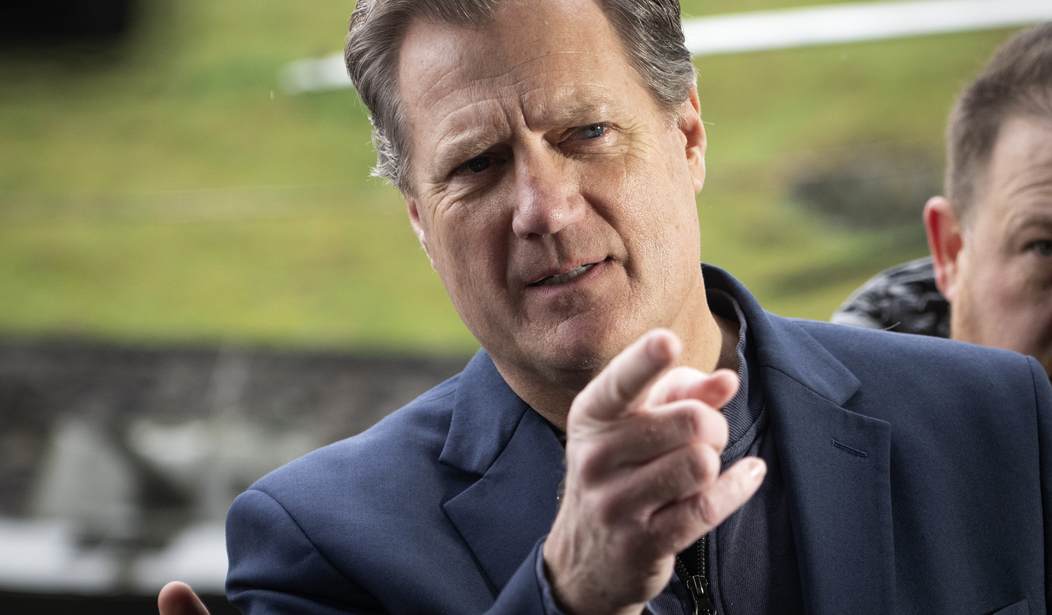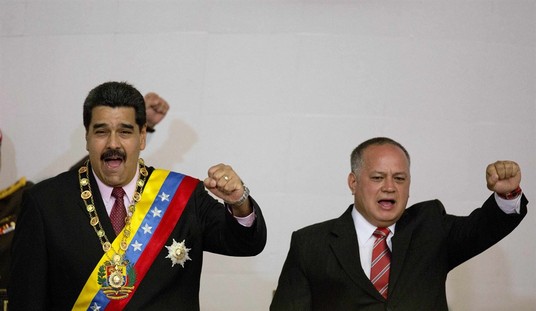How big a concern is the leaked intelligence pointing to a Russian nuclear threat to our entire communications network? The Outer Space Treaty of 1967 forbade any nation from placing nuclear weapons for any reason in outer space.
It hardly seems relevant when you consider that Russian President Vladimir Putin has violated at least four international accords, including the Intermediate-Range Nuclear Forces Treaty, the New Strategic Arms Reduction Treaty, the Open Skies Treaty, and the Incidents at Sea Agreement.
Putin has almost singlehandedly upended the post-World War II international order. Before you cheer too loudly, you might want to think about what exactly that means.
For one thing, it could mean nukes in space — a no more destabilizing, dangerous development has ever occurred before. Getting rid of the Outer Space Treaty would create chaos at just the wrong time — just when humans are about to make the biggest breakthroughs in the exploitation of space to date.
The unnamed weapon would be capable of knocking down a large number of surveillance and communication satellites in low earth orbit — perhaps over an area as large as a continent depending on the weapon's power and the altitude it's detonated at.
The only real counter to such a weapon is to build one of our own. We've almost certainly been working on such a weapon for decades as has Russia. Have they really stolen a march on us and are on the verge of deploying such a weapon?
More to the point, why would they create such a weapon?
Even if Russia does place a nuclear weapon in orbit, U.S. officials are in agreement in their assessment that the weapon would not be detonated. Instead, it would lurk as a time bomb in low orbit, a reminder from Mr. Putin that if he was pressed too hard with sanctions, or military opposition to his ambitions in Ukraine or beyond, he could destroy economies without targeting humans on earth.
The United States government is taking this threat extremely seriously. Biden sent Secretary of State Antony Blinken to the Munich Security Conference to meet with China and India on the sidelines to get Putin to hold off on deploying the weapon.
Mr. Blinken’s message was blunt: Any nuclear detonation in space would take out not only American satellites but also those in Beijing and New Delhi. Global communications systems would fail, making everything from emergency services to cell phones to the regulation of generators and pumps go awry. Debris from the explosion would scatter throughout low-earth orbit and make navigation difficult if not impossible for everything from Starlink satellites, used for internet communications, to spy satellites.
House Intelligence Committee Chair Mike Turner raised the alarm about this weapon last week, demanding that Biden declassify as much of the information as possible.
He said on NBC's "Meet the Press" that the Biden administration was “sleepwalking into an international crisis.”
“We need to make certain that we avert what could be an international crisis,” he added.
“What I have called for is for the administration to declassify this, and my concern is that this is kind of like the Chinese spy balloon and the administration is kind of hiding perhaps, you know, some inaction,” Turner said on Saturday.
Turner was right to worry. It doesn't appear that the administration treated the intelligence with quite the importance it deserved.
“Everyone who’s looked at it uses the same language that I have — that it is a very serious threat,” Turner told “Meet the Press” on Saturday, adding that the administration is now “beginning to take action.”National Security Advisor Jake Sullivan dismissed Turner's concerns claiming the administration was on top of the issue.
Sullivan spoke publicly about the issue on Wednesday, saying at a White House briefing that he’d already reached out to brief a bipartisan Gang of Eight, comprising the top leaders from the House and Senate, to “offer myself up for a personal briefing.”
“That’s been on the books, so I am a bit surprised that Congressman Turner came out publicly today, in advance of a meeting on the books,” Sullivan said Wednesday.
Perhaps Turner was concerned that the White House would have the same reaction to a nuke in space that they had with a spy balloon crossing the entire expanse of the United States.










Join the conversation as a VIP Member